Blog
Page 9 of 152
What Is Management Override of Internal Controls?
What Is Management Override of Internal Controls? Internal controls are the processes, procedures, and safeguards designed to protect organizations from fraud, misreporting on financial statements, cybersecurity threats, and operational loss. They’re also vital for maintaining compliance with laws and regulations. But there’s one critical weakness: management override. When leaders bypass or manipulate the internal control […]
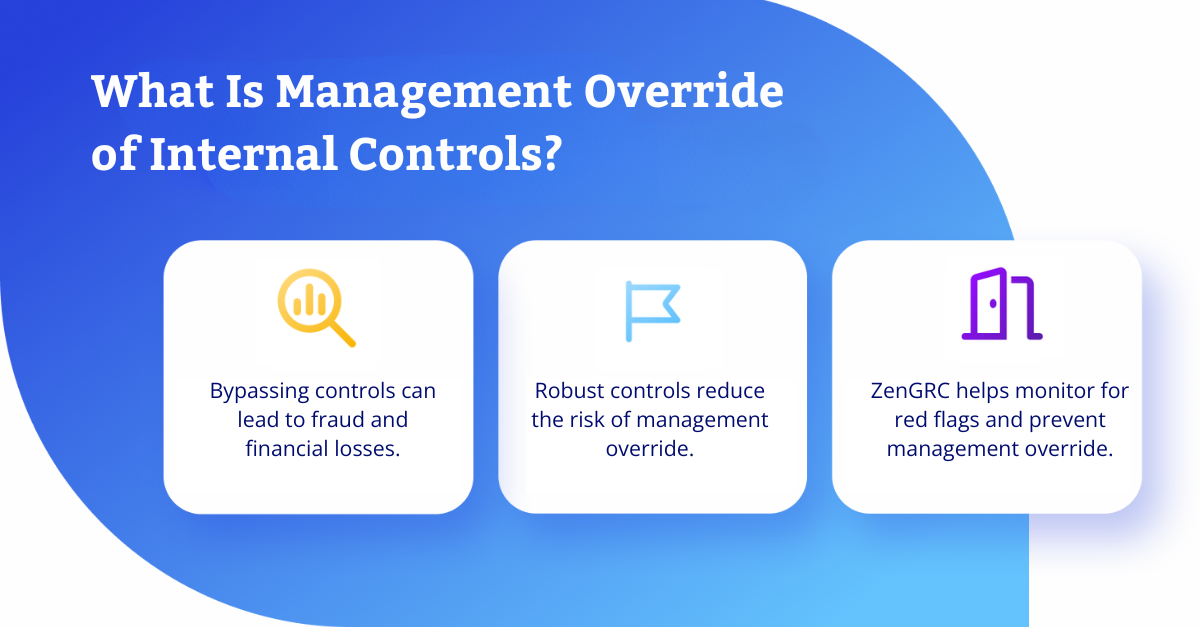
September 5, 2024
IT Audit Checklist for Your IT Department
A disruption to your company’s information technology (IT) systems can disrupt your business operations as well, costing you time and money while employees wait for repairs. An audit of your IT systems can identify and fix those potential disruptions before they happen – and an IT audit checklist can ensure that your IT department has […]
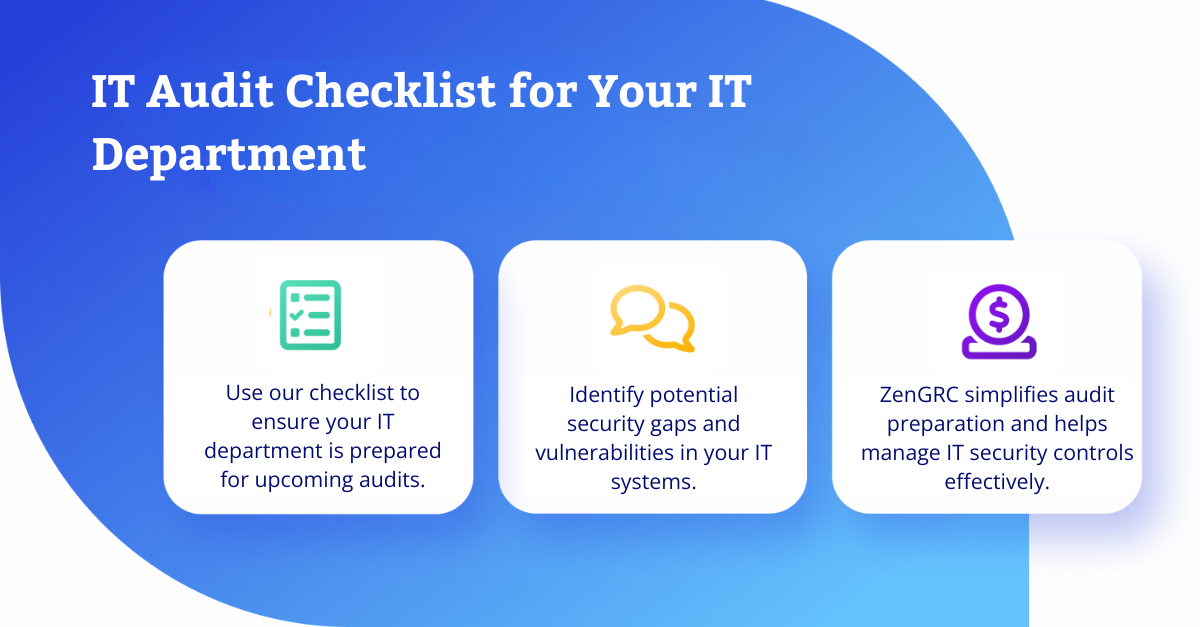
Tags: Audit Management
5 Effective Strategies to Mitigate Market Risk
5 Effective Strategies to Mitigate Market Risk Key Takeaway: Market risk is inherent to all investments, but there are ways for organizations to minimize potential losses. Strategic risk tolerance assessment, portfolio diversification, hedging strategies, continuous market monitoring, and long-term investment approaches can be done as part of comprehensive enterprise risk management. Quick Navigation Key Terms […]
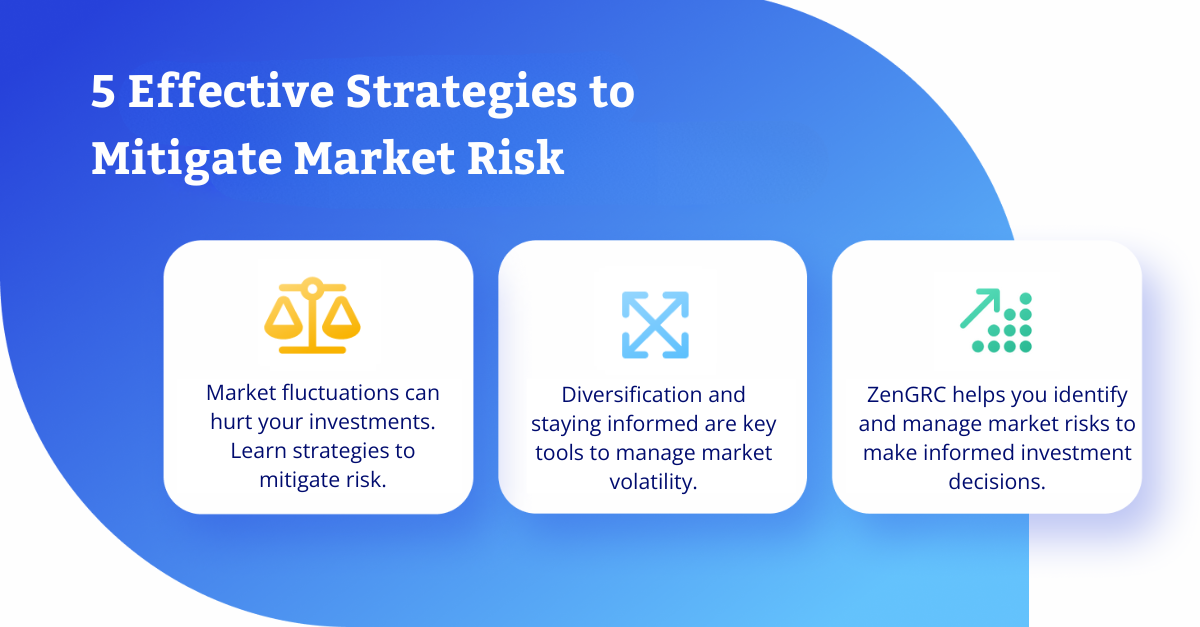
Tags: Risk Management
How To Identify Internal Control Weaknesses
A company’s employees, shareholders, senior management, and board of directors expect the company to conduct its business reliably, efficiently, and securely – especially its financial transactions. A company’s internal controls are the mechanisms to ensure that its business processes meet those expectations. To keep that system of internal controls running smoothly year after year, you […]
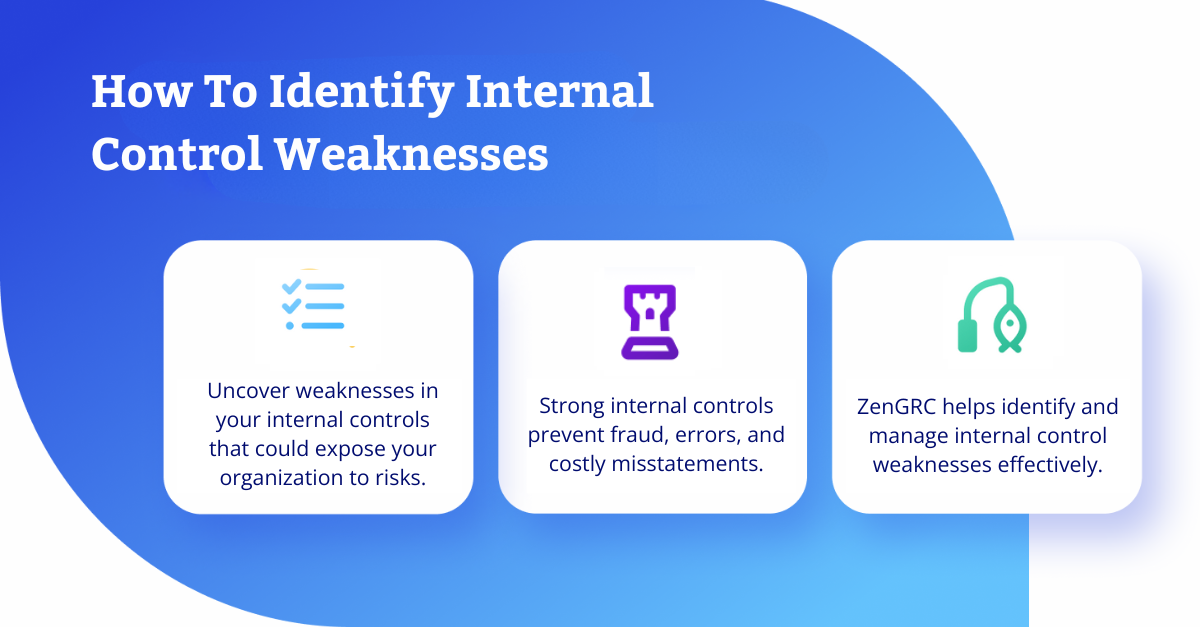
5 Tips To Prepare For Your External Audit
Your company’s first external audit can be a bit overwhelming. The audit firm will seek a considerable amount of audit evidence from your business – and if you want to prepare for that compliance audit in advance, there’s an equally vast amount of information available about how audits should work. Every company’s audit experience will differ, depending on the […]
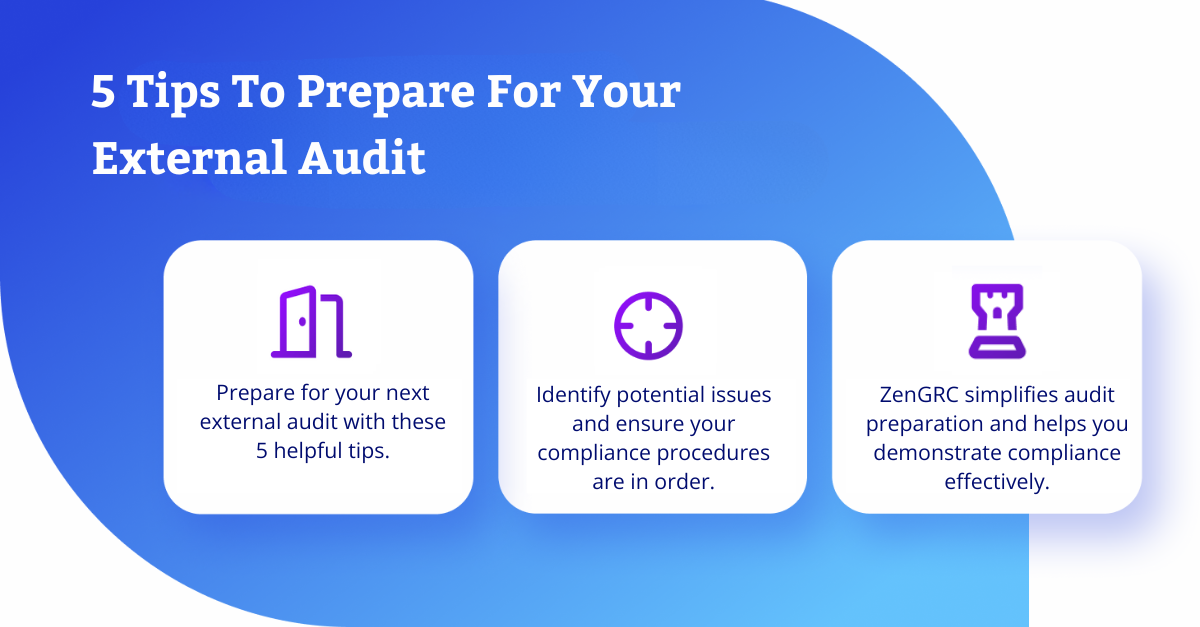
Tags: Audit Management
What Is an Audit Trail and What Purpose Does it Serve?
Audits are independent assessments of the security of sensitive data and computer systems or a company’s financial reporting. Audits can be time-consuming and often feel peripheral to most people’s daily workload – but they are crucial exercises. Hence, it’s essential to establish an audit management process. In addition, audit procedures are methods that auditors use to obtain sufficient […]
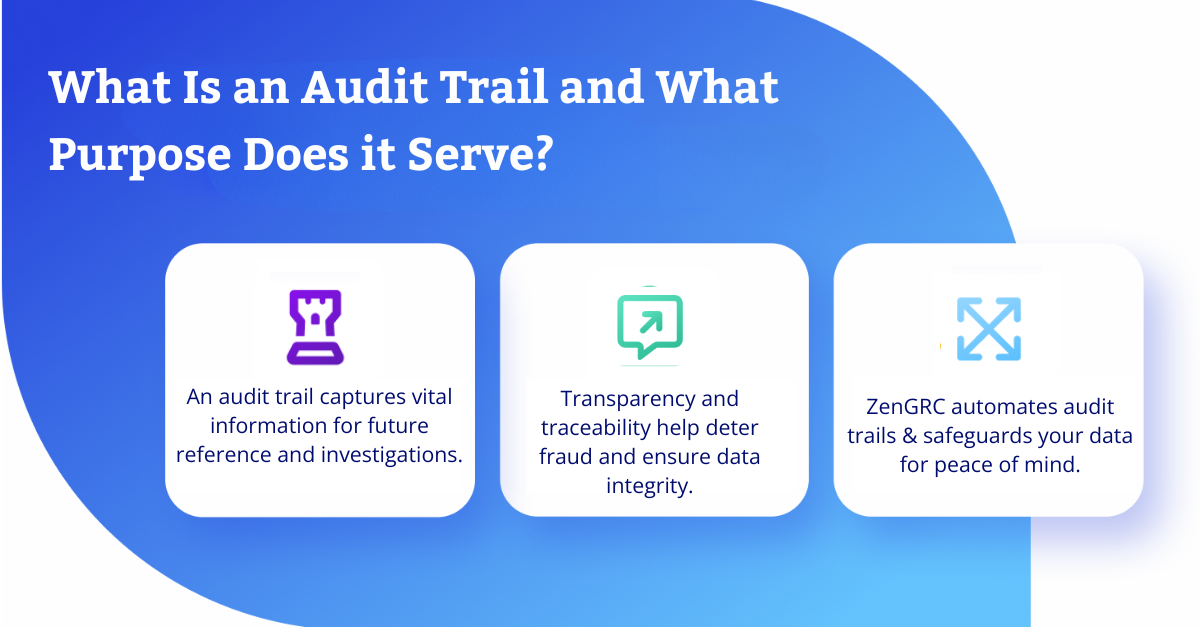
Tags: Audit Management
Due Care vs Due Diligence: What Is the Difference?
Due Care vs Due Diligence: What Is the Difference? Key Takeaway Due care involves ongoing efforts to maintain cybersecurity measures and protect systems, while due diligence focuses on investigating and assessing risks associated with third-party vendors and business decisions before entering agreements. Quick Navigation Key Terms Due Care: The ongoing effort to maintain cybersecurity measures […]
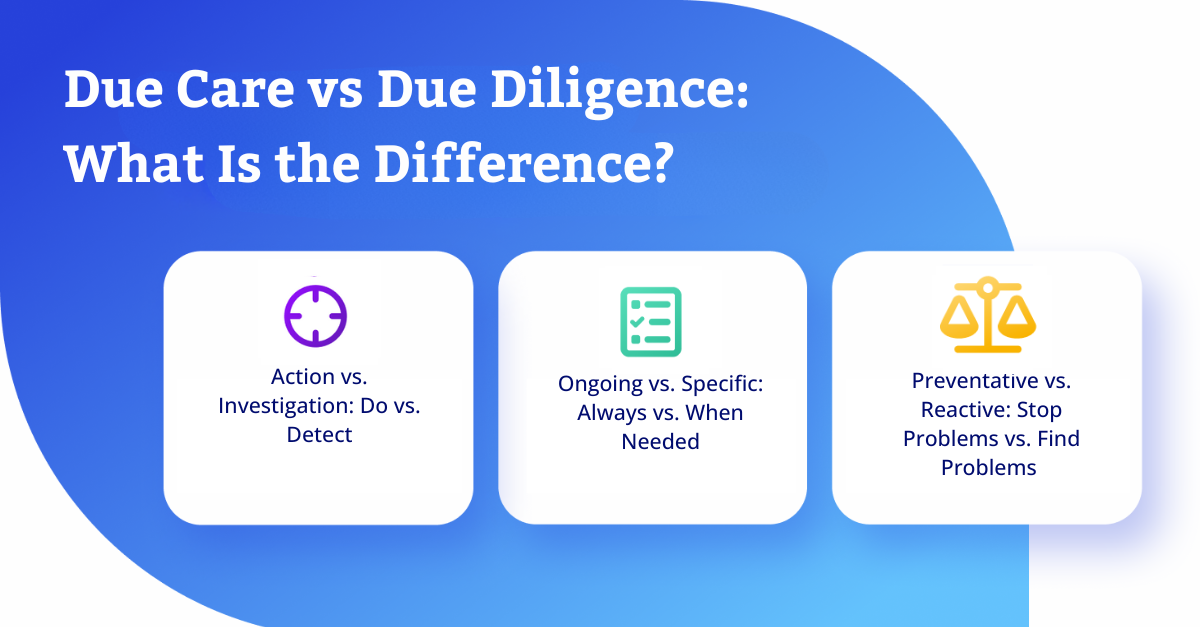
Tags: Audit Management
September 3, 2024
How to Build a Risk Register for Your Business
How to Build a Risk Register Every successful risk management program identifies, analyzes, prioritizes, and mitigates risk events. The process should be repeated at regular intervals to generate data about the threats to business operations, the risk those threats pose, and the steps necessary to reduce risk. That is an enormous amount of data a […]
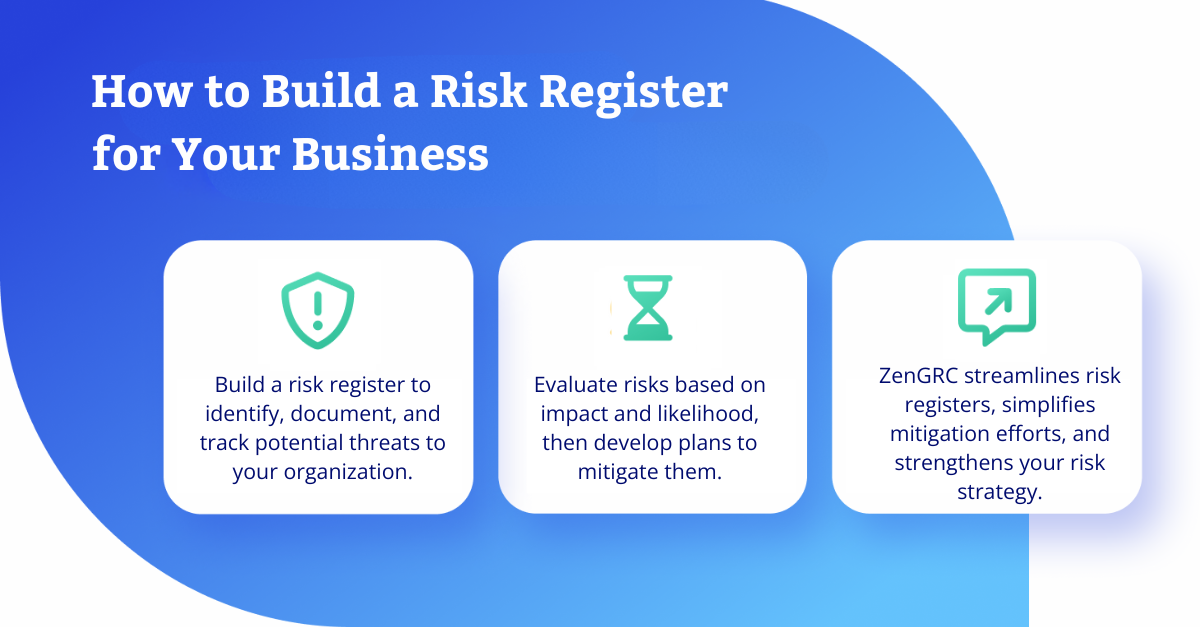
Tags: Risk Management
August 30, 2024
Common Risk Management Strategies: Risk Avoidance vs. Risk Reduction
Risk is a fact of life for every enterprise. It refers to the possibility that an unexpected event may cause unexpected results. These results are usually undesirable and often harmful. To prevent such harm, it’s crucial to manage and control risk so that it remains at acceptable levels. This is where enterprise risk management (ERM) […]
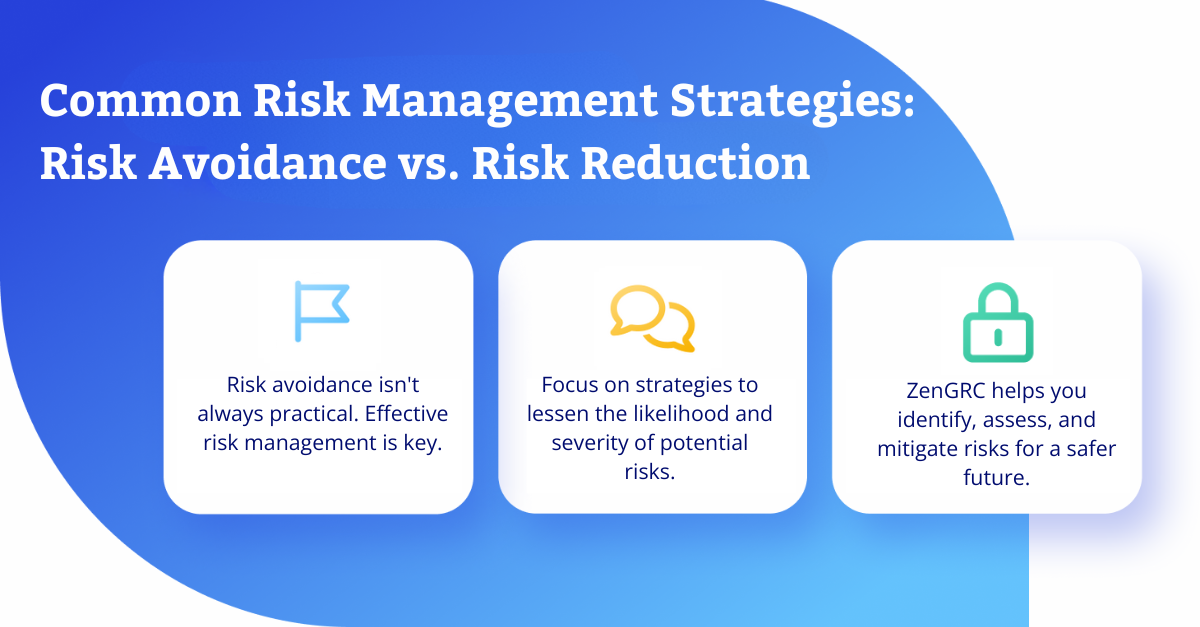
Tags: Risk Management
Risk Appetite Statement Examples
Risk Appetite Statement Examples Key Takeaway Risk appetite statements define the level of risk organizations will accept to achieve business goals. Effective statements are specific, categorized by risk domain, and provide clear guidance for decision-making across teams. Table of Contents Key Terms Risk Appetite: The level of risk an organization is willing to accept in […]
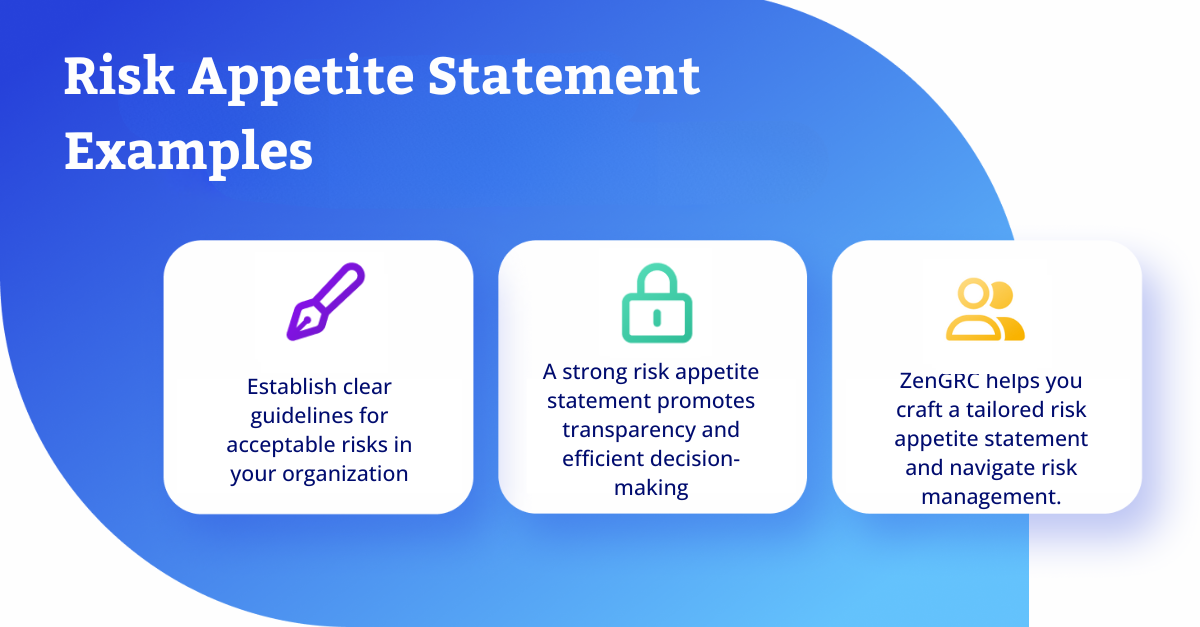
Tags: Risk Management
Page 9 of 152
